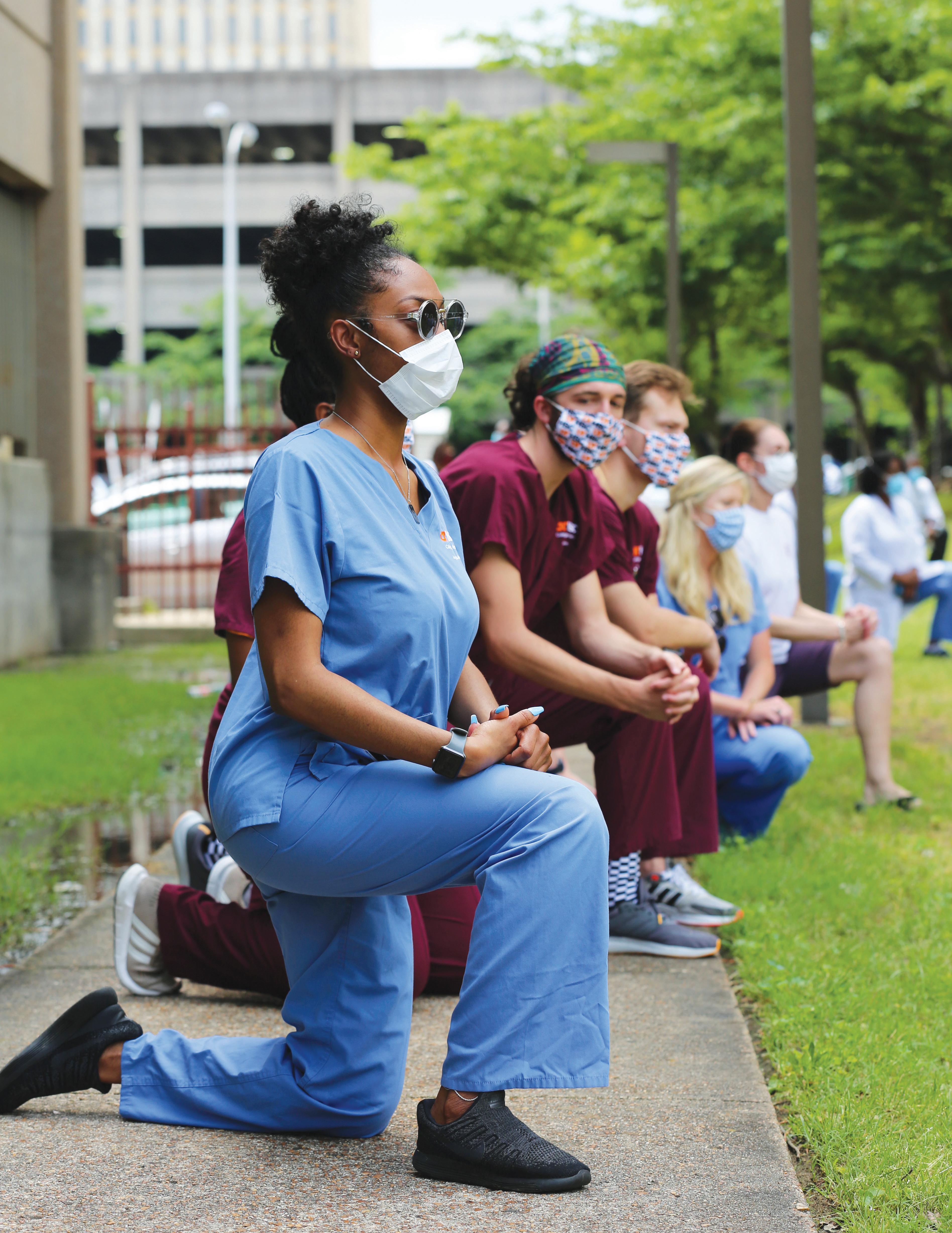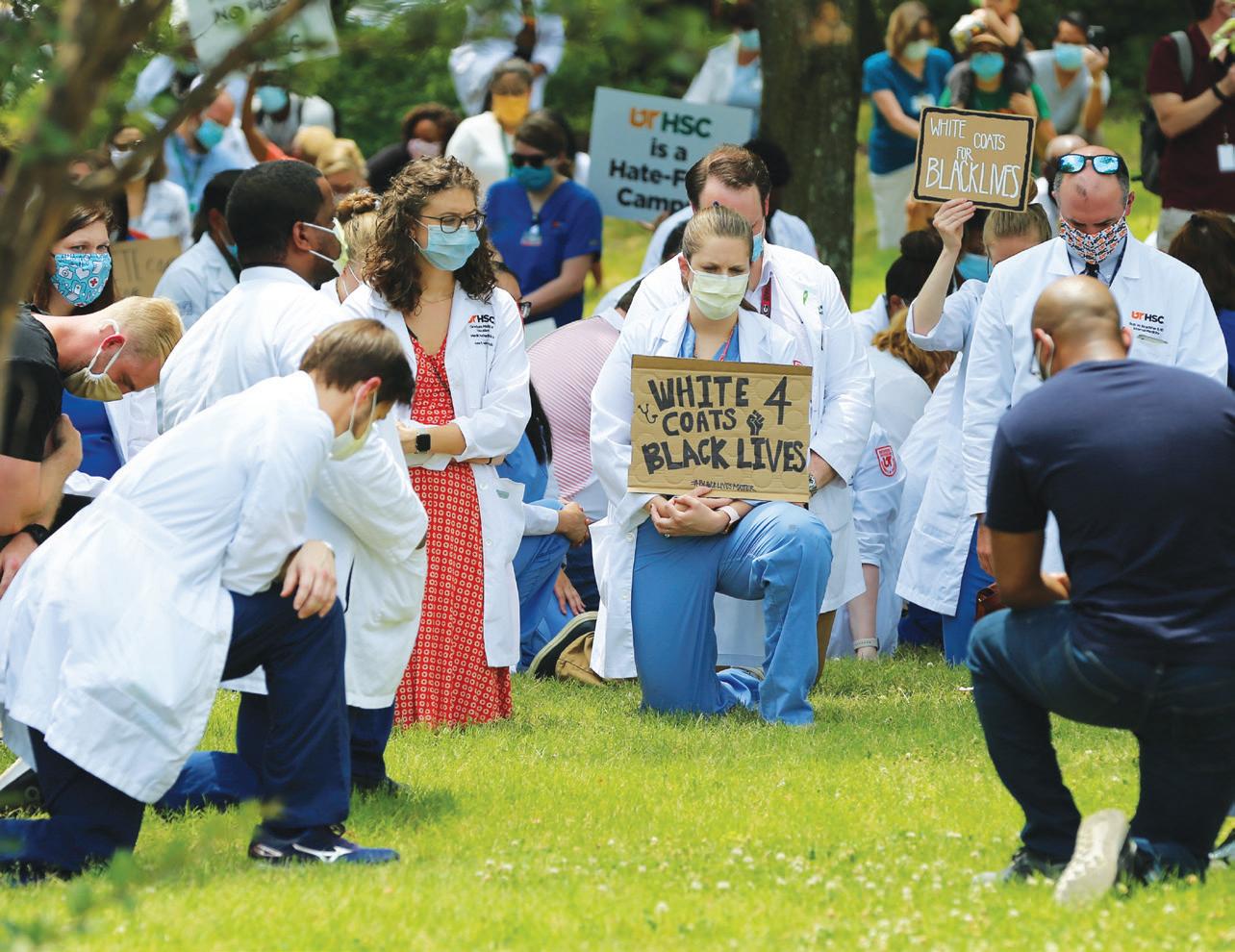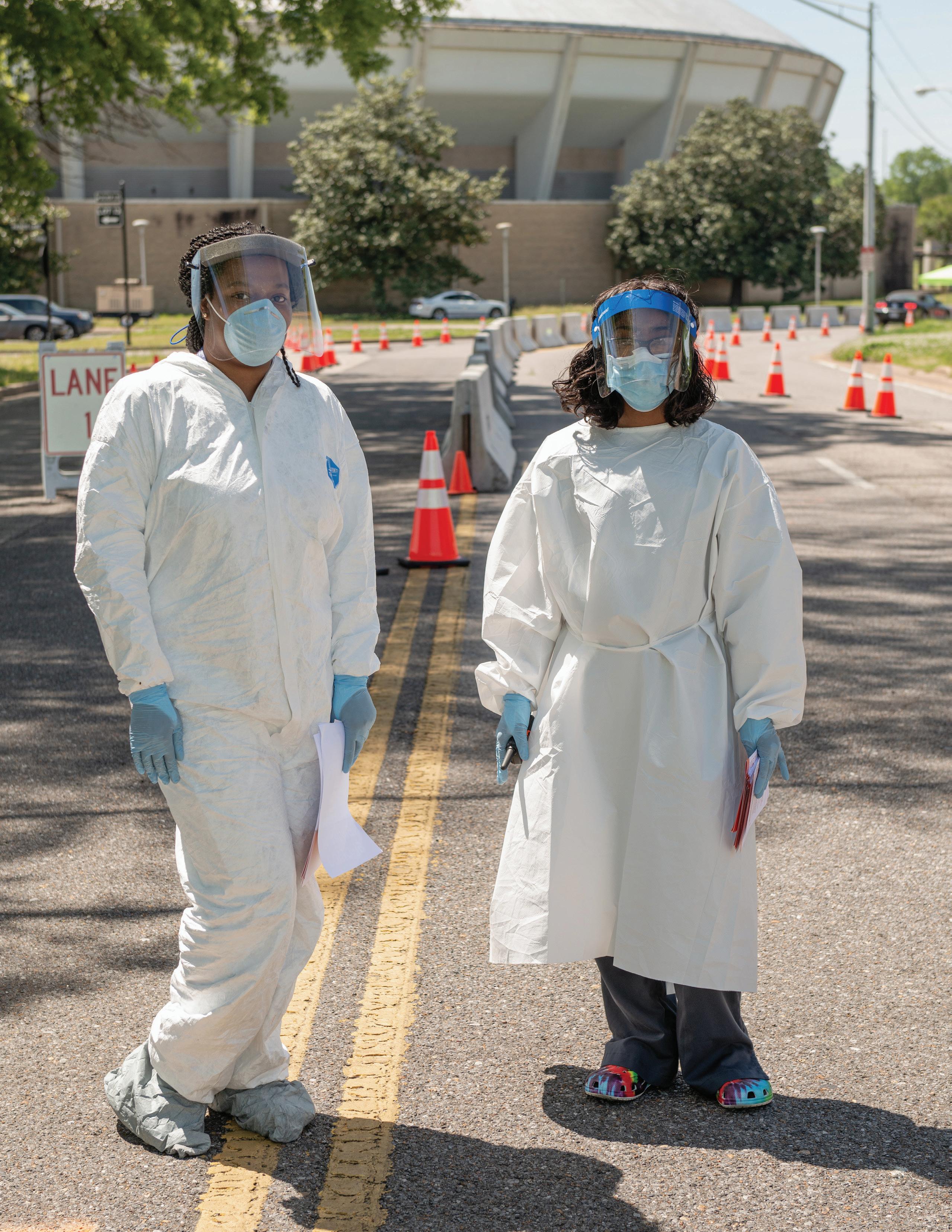
3 minute read
Diversity and Inclusion

Several hundred students, physicians, health care and hospital workers, and community supporters gathered at the University of Tennessee Health Science Center at noon on June 5 for a display of solidarity themed “White Coats for Black Lives.” The demonstration was organized by UTHSC medical students and residents and the Bluff City Medical Society and included participants from across the colleges at UTHSC. It began with the crowd kneeling silently for 8 minutes and 46 seconds to commemorate the time George Floyd was pinned down by police and unable to breathe before he died on Memorial Day in Minneapolis. “Today, you have begun the fight toward the biggest health pandemic of our lifetime, which is racism,” said Keith Norman, vice president of Government Affairs for Baptist Memorial Health Care. “Racism is a public health crisis. Give yourself a hand for being a part of the solution.” LaTonya Washington, MD, MBA, CPE, FAAP, FACP, FHM, president of the Bluff City Medical Society said, she was encouraged to see the diversity of the crowd. “This is the beginning,” she added. “Our work has just begun. So, this is a call to action. If you see injustices, please stand up, say something, and call it out. There is no way we can overcome this alone.” People are looking for change, said Elizabeth Clayton, a second-year medical student. “We have to break down institutional racism that exists through prejudicial attitudes and discriminatory behaviors in our justice system, health care system, educational system, and all forms of media,” she said. “This does not stop at this protest. We must continue to examine our own hearts and minds. We must continue to hold each other accountable and continue to have uncomfortable conversations, if we’re to create new systems that benefit everyone.”
Continuing the Conversation
• The work by students and across the colleges and the university did not stop with the protest. UTHSC students launched “Uncomfortable Conversations” a summer-long anti-racism discussion series. • The UT College of Medicine Gold Humanism Honor
Society Chapter led by the Assistant Dean for
Well-Being and Medical Student Education Mukta
Panda, MD, was nationally recognized for its hard work and initiatives including the “Uncomfortable
Conversations” project. • A team of faculty members from the College of Health Professions was awarded a One UT
Collaboration and Innovation Grant for Project
TRIUMPH, or Tennessee Recruitment to Increase
Underrepresented Minorities into Professions of
Health. The project aims to create a mentoring program that will serve as a pipeline to increase admissions of students from underrepresented minorities from the University of Tennessee,
Knoxville, into the Physical Therapy, Occupational
Therapy, and Speech-Language Pathology programs at UTHSC. • The Office of Equity and Diversity held its inaugural Social Justice Awards recognizing
UTHSC students, residents, and fellows, whose actions demonstrate the importance of social justice activism and equity and diversity, while positively impacting UTHSC and the community. • CoHP faculty member Stephanie Lancaster is serving as vice chair of the Coalition of
Occupational Therapy Advocates for Diversity (COTAD), a national non-profit organization focused on addressing issues of systemic racism and health care inequity within the field of occupational therapy. • The Health Justice Collective (HJC), a new group formed of faculty, staff, and students seeking to amplify the message of health equity, social justice, and unbiased health care. • The Office of Equity and Diversity announced its newest grant awardees of the 2020 Diversity and
Inclusion Mini-Grant Program. Overall, $20,000 was awarded. • The Diversity Certificate Program at UTHSC graduated 24 faculty and staff members in its latest cohort. The program, which began in 2017, is led by the Office of Equity and Diversity. • Various colleges announced the appointment of diversity and inclusion officers or boards.




